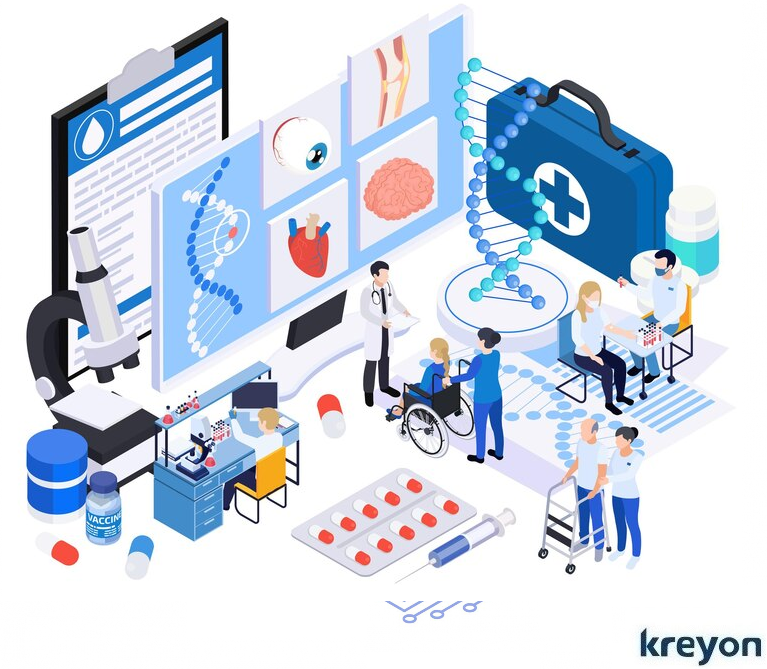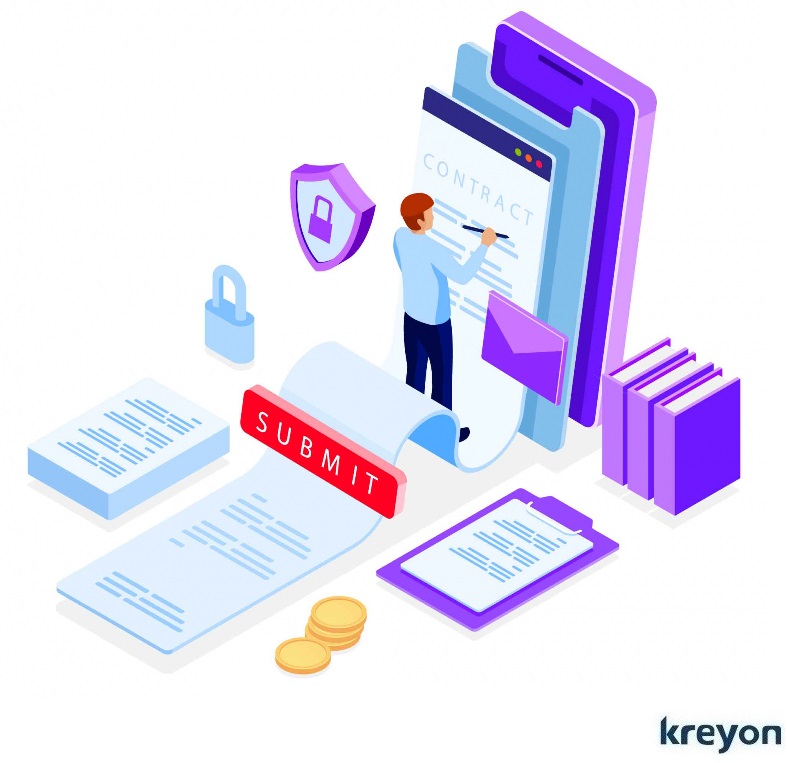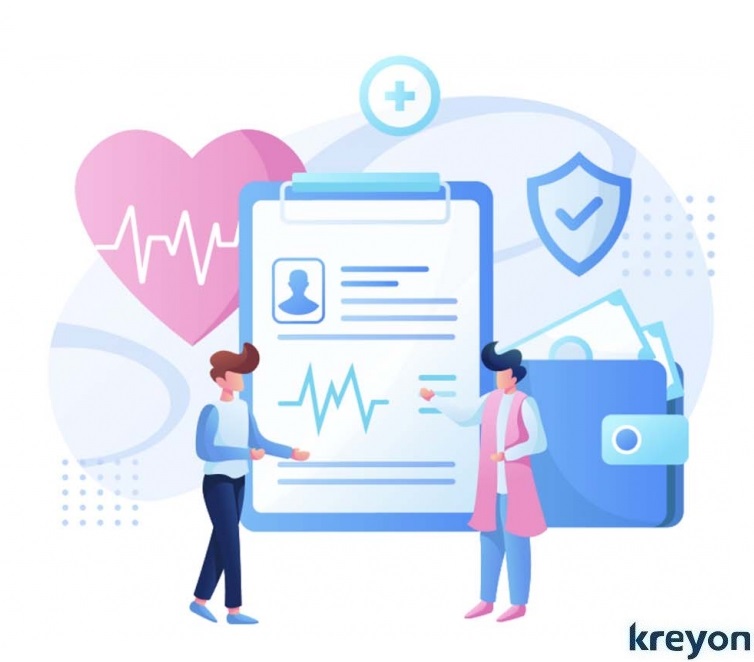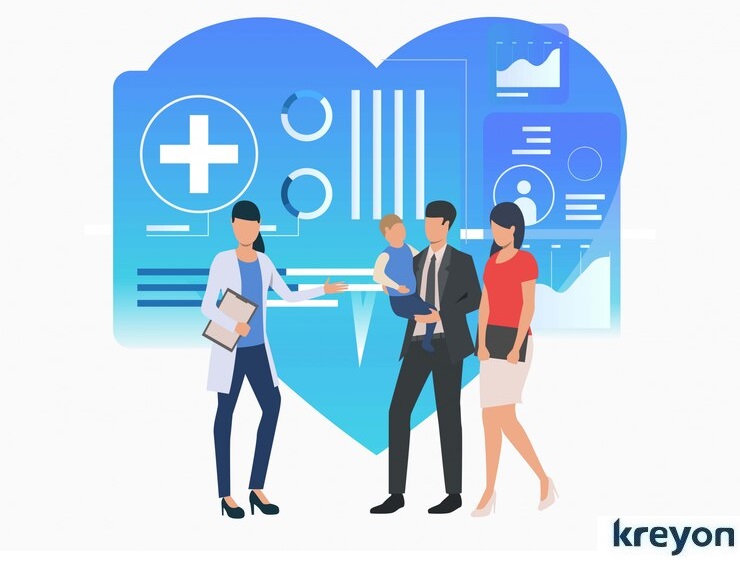The Ultimate Guide to Medical ERP for Healthcare Providers

The advent of medical ERP (Enterprise Resource Planning) systems has revolutionized how healthcare providers manage operations, from patient registration to patient admission and beyond.
This integration of business processes into a single, coherent system enhances the ability to deliver high-quality care while optimizing operational effectiveness.
The significance of ERP in the medical field cannot be overstated, as it directly impacts the speed and quality of healthcare delivery, making the exploration of customized ERP solutions for the healthcare sector a timely and critical endeavor.
Here we discuss customized ERP software for healthcare providers, underscoring how such systems can streamline patient admission processes, improve the accuracy of patient registration, and overall, herald a new era of efficiency in healthcare.
Further, we dig into the key features of medical ERP solutions that are pivotal to their success, addresses the implementation challenges and offers practical solutions, alongside presenting case studies that illuminate the transformative power of healthcare ERP systems.
The article aims to provide a comprehensive guide for healthcare providers looking to unlock the potential of medical ERP systems in enhancing operational efficiency and patient care quality.
Evaluating Customized ERP Software for Healthcare Providers

Enhanced Patient Data Management
Customized ERP software significantly improves patient data management by centralizing electronic health records (EHRs), billing information, and administrative data.
This integration allows healthcare providers to access comprehensive patient records quickly, enhancing the accuracy of diagnoses and the efficiency of treatment delivery.
By breaking down information silos, ERP systems ensure that all relevant departments have real-time access to necessary patient information, facilitating a more coordinated care approach.
Improved Interdepartmental Coordination
ERP systems excel in integrating data across various healthcare departments, such as radiology, pharmacy, and outpatient services. This unified system not only enhances care coordination but also supports accurate and timely treatment.
The real-time messaging, task assignments, and shared calendars features enable healthcare professionals to communicate and collaborate effectively, leading to improved patient care outcomes and operational efficiency.
Regulatory Compliance Management
Healthcare ERP systems are designed to help manage compliance with stringent regulatory requirements like HIPAA. Automated alerts and audit trails provided by ERP systems assist healthcare organizations in monitoring adherence to regulations, mitigating risks, and ensuring data integrity.
This reduces the burden of compliance management and helps avoid potential fines and legal penalties associated with non-compliance.
Optimized Resource Utilization
ERP software aids in the optimal allocation of resources, including staff, equipment, and facilities. Through features like predictive analytics and demand forecasting, healthcare providers can anticipate resource needs, minimize wastage, and enhance cost-effectiveness.
This strategic resource management ensures that the quality of patient care is maintained without unnecessary expenditure.
Bottomline Impact
Customized ERP solutions streamline processes and reduce administrative overheads, leading to significant cost savings. By identifying inefficiencies and implementing data-driven optimizations, healthcare organizations can not only save money but also improve service quality.
Additionally, ERP systems automate many administrative tasks, allowing healthcare providers to focus more on patient care and less on bureaucratic processes, further enhancing operational efficiency.
Key Features of Customized ERP Software in Healthcare

Patient Registration and Scheduling
Customized ERP software enhances healthcare operations starting with efficient patient registration and scheduling systems. These systems enable healthcare providers to manage patient information seamlessly, from initial contact through treatment completion.
By integrating appointment scheduling directly within the ERP, facilities can reduce wait times and improve patient satisfaction, ensuring that scheduling is handled efficiently and accurately.
Inventory and Supply Chain Management
A robust ERP system offers comprehensive inventory and supply chain management capabilities essential for healthcare providers. These systems help manage medical supplies and equipment, track inventory levels in real-time, and streamline procurement processes.
Effective supply chain management within ERP systems reduces stockouts and wastage, ensuring that critical resources are always available when needed.
Patient Flow Prediction: Use ML algorithms to forecast patient flow patterns within healthcare facilities, optimizing resource allocation, staffing levels, and bed management to reduce wait times and improve operational efficiency.
Supply Chain Management: Apply ML techniques to predict demand for medical supplies, equipment, and pharmaceuticals, enabling proactive inventory management, cost optimization, and supply chain resilience.
Billing and Financial Management
ERP systems in healthcare come equipped with advanced financial management tools, including accounts payable, accounts receivable, and general ledger functionalities.
These features allow healthcare organizations to streamline financial operations, enhance billing processes, and ensure accurate financial reporting, which is crucial for maintaining operational efficiency and compliance with healthcare regulations.
Human Resources and Payroll Management
Healthcare ERP systems integrate human resources and payroll management, providing a unified solution that enhances employee management.
These systems automate payroll processing, manage employee records, and support compliance with employment laws, thereby improving overall administrative efficiency and employee satisfaction.
Data Security and Compliance
Security and compliance are paramount in healthcare ERP systems. These systems are designed to be compliant with healthcare regulations such as HIPAA, ensuring that patient information is protected against unauthorized access.
ERP systems provide security features like data encryption and audit trails, which help healthcare facilities maintain data integrity and avoid legal penalties.
The New Frontier: Cutting-Edge Features in Medical ERP

As technology evolves, so do Medical ERP systems. Here are some exciting new features that are redefining the healthcare landscape:
Artificial Intelligence (AI) and Machine Learning (ML): AI-powered features can analyze patient data to identify potential health risks, predict patient outcomes, and personalize treatment plans.
Telehealth Integration: Seamless integration with telehealth platforms allows for remote patient consultations, improving access to care and convenience.
Patient Engagement Tools: Secure patient portals empower patients to manage their health information, schedule appointments, medicine reminders and communicate with providers online.
Business Intelligence and Analytics: Advanced analytics provide deeper insights into operational performance, enabling data-driven decisions for continuous improvement.
Cybersecurity and Data Privacy: Advanced security protocols ensure the safety and privacy of sensitive patient data, complying with evolving regulations.
Implementation Challenges and Solutions
Overcoming resistance to change involves continuous communication and early engagement of key stakeholders. Sharing success stories from other healthcare institutions can foster a shared sense of purpose and encourage staff engagement.
Tailored Training Programs for Addressing staff reluctance requires tailored training programs that demonstrate how the ERP system simplifies daily tasks. Establishing a feedback loop allows users to voice concerns and suggest improvements, fostering a sense of ownership.
Integration with Existing Systems
A comprehensive ERP system to unifies operations across multiple facilities. This integration not only streamlines data management but also standardized supply chain processes, which reduced operational costs significantly.
The ERP system creates a single source of truth for financial and supply chain data, enabling more effective management of resources and facilitating better financial oversight and compliance.
Data Mapping and Transformation: Prioritize data mapping and transformation mechanisms during integration to ensure seamless communication between systems, despite differences in data formats. Thorough testing with simulated data scenarios helps identify and resolve integration bottlenecks.
Collaboration with Healthcare Professionals: Collaborate closely with healthcare professionals during the customization process to align the ERP system with intricate clinical workflows. A modular approach allows for iterative adjustments while preserving system stability.
Customization to Meet Specific Needs
Modular Customization: Implement a modular approach to customization, allowing for adjustments that accommodate evolving needs without compromising system stability.
This strategy ensures that the ERP system remains aligned with the specific workflows of different healthcare departments. Some of the most commonly used customisations for medical ERP are:
Scalable Security Options: Choose ERP systems that offer scalable security options to ensure data protection throughout organizational growth. Some systems come with industry-specific features or add-ons that help maintain compliance and data security.
Advanced Encryption and Security Protocols: Invest in solutions with advanced encryption to protect data flow across networks. Implementing security protocols like two-factor authentication and regular password changes can significantly enhance data security.
Enhancing Patient Care with ERP: The ERP system provides a unified platform that supported seamless communication across departments, enhancing the efficiency of clinical operations. This integration allows for quicker decision-making and more coordinated care processes, directly impacting patient care quality & safety.
Compliance with Regulations: Ensure that security measures meet the standards of regulations governing your geographic region. Compliance with laws like HIPAA is crucial, and ERP systems should include features that support adherence to these regulations.
Conclusion
As we move forward, the journey toward fully integrated and efficient healthcare operations via medical ERP systems seems not only possible but imperative.
The challenges of implementation, from staff training and system integration to customization and data security, demand attention but are surmountable with strategic planning & commitment.
By leveraging the capabilities of ERP systems, healthcare organizations can transcend traditional barriers, ensuring seamless operations & superior care delivery that meets today’s demanding healthcare standards.
The significant benefits, including enhanced patient data management, improved interdepartmental coordination, regulatory compliance management, optimized resource utilization, and cost efficiency, to unlock a new era of efficiency and quality in patient care.
Kreyon Systems’ customized medical ERP system is the all-in-one solution for healthcare providers looking to improve operations, boost patient care & revenue. If you need assistance, please get in touch.
